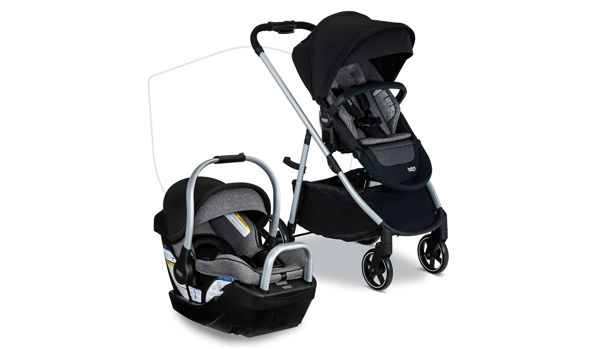They say that nursing is natural, and while it is a very natural thing to do, that does not equate to it being easy. For many nursing individuals, the journey can have many bumps in the road, and clogged ducts are one of the most common bumps that nursing individuals face. Almost every person who has or will nurse a baby will experience a clogged duct once, if not a few times. The good news is that most of the time, you can get relief quickly, but it is essential to know what they are because when they get bad enough, they can lead to Mastitis.
What Are Clogged Ducts?
Clogged ducts occur when the milk does not drain properly. The pressure from the milk not being drained begins to build up behind the clog and can irritate the tissues.
Symptoms of a clogged duct are pain during letdown, pain or swelling near the lump but not in the entire breast, the lump moving or getting smaller once you pump or nurse the baby, and the discomfort lessening after pumping or nursing the baby.
There are a few things that can increase your chances of getting a clogged duct, but there are times when there is nothing that you could have done to prevent it from occurring.
Some of the things to avoid are skipping feedings or pumping sessions. Another cause would be going too long between feedings or pumping sessions. When a baby’s feeding schedule or amount changes (like when you begin giving solids), there can be a higher chance of getting a clogged duct. Severe engorgement or accidentally nursing on only one breast and a baby having a poor latch can also lead to a clogged duct. Lastly, things that cause pressure on the ducts, like a tight bra or wearing a seatbelt for long amounts of time.
So, You Have A Clogged Duct. Now What?
An acronym, BAIT, can get you started. B- breast rest; do not over-pump or overfeed. If you have an oversupply, work to decrease production. Feed your baby like normal, but do not excessively feed. A- Take an Advil every eight hours for 48 hours. I- Apply Ice, not heat. Every thirty minutes, have an ice pack on your chest for ten minutes to reduce inflammation and swelling. T- Take a Tylenol every eight hours for 48 hours.
Another thing to consider trying is gently massaging your breast/chest while you nurse or pump toward the lymph nodes. Some nursing individuals have reported that having a partner attempt to suck out the clogged duct can be more successful than having a baby or a pump sucking. Other individuals encourage dangle feeding, where the baby is on the floor, and you are above them nursing. Many have succeeded in taking sunflower or soy lecithin to help with clogged ducts. Whatever you choose to do, you must act as a clogged duct can quickly take a turn for the worst, becoming Mastitis.
What Is Mastitis?
Mastitis is an inflammation of breast/chest tissue that can sometimes involve infection. Signs and symptoms that your clogged duct has progressed to Mastitis are tenderness and warmth to the touch, swelling of the breast/chest, thickening of breast/chest tissue or a lump on the breast/chest, pain or burning sensation while nursing, skin redness, feeling as though you have the flu or are sick, and a fever over 101.4 Fahrenheit.
In many cases, individuals who develop Mastitis will need to take medication to help clear the infection. Because of this, if you find yourself with Mastitis, reach out to your care provider and get support.
My best tip for nursing and the complications that can occur while on your nursing journey is to get an International Board-Certified Lactation Consultant or IBCLC. An IBCLC is an individual who has undergone over four years of college to get a degree and hands-on training. These individuals are the best in their field, and things like clogged ducts and Mastitis are their bread and butter.
Many IBCLCs take insurance and will come to your home to help ensure that you have a successful nursing journey. Even if you have to pay out-of-pocket, IBCLCs are worth their weight in gold.
Having someone who understands the intricacies of nursing and will look at your situation as an individual can be the difference between a successful and supported nursing journey and a lonely and difficult one. You deserve to be held as you embark on the journey of nursing your little one, especially through the bumps in the road.






